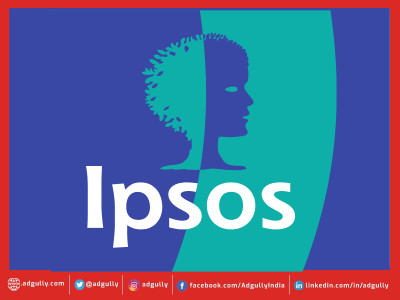Ipsos study reveals 'India second most economically confident country'
Indians have emerged as the second most confident people about their economy globally. This is on account of lower oil prices, inflation subsiding and rise in job prospects, according to a report by global research firm Ipsos.
According to the “Ipsos Economic Pulse of the World” study, India's economic confidence level has shot up to 80 percent in September 2014, a very significant rise of 8 points making India the 2nd most economically confident country in the world after Saudi Arabia.
One in two (52%) Indians believe that the local economy which impacts their personal finance is good, a sharp rise of 5 points.
Indians are very hopeful that Narendra Modi-led NDA government will continue making progress on its domestic reforms agenda and encourage investments that will trigger economic growth and create more jobs; with more than seven in ten (71%) people expecting that the economy in their local area will be stronger in next six months, a dramatic rise of 10 points.
“With economic reforms gaining momentum, together with lower global oil prices and easing inflation, India’s growth prospects remain bright. This is reflected in the strong economic confidence of Indians," said Amit Adarkar, Managing Director, Ipsos Research Pvt. Ltd.
“Improved growth prospects in the US will support India's goods and services exports, while stronger remittance inflows and declining oil prices are expected to support domestic demand and aid growth,” added Adarkar.
The online Ipsos Economic Pulse of the World survey was conducted in September 2014 among 18,010 people in 24 countries.
Holding steady for the second month in a row, the average global economic assessment of national economies surveyed in 24 countries remains unchanged as 40% of global citizens rate their national economies to be ‘good’.
Even after losing some ground since last sounding, Saudi Arabia (84%) remains at the top of the national economic assessment, followed by India (80%), Germany (79%), Sweden (77%) and China (74%). A small minority in France (5%) rate their national economy as good, followed by Italy (7%), Romania (9%), Spain (10%), Hungary (16%) and South Korea (16%).
Countries with the greatest improvements in this wave: India (80%, +8 pts.), Sweden (77%, +7 pts.), Egypt (68%, +7 pts.), Germany (79%, +4 pts.), Poland (28%, +2 pts.), South Africa (26%, +2pts.) and Romania (9%. +2pts).
Countries with the greatest declines: Russia (53%, -6 pts.), Japan (22%, -5 pts.), Argentina (19%, -5 pts.), Canada (65%, -3 pts.), Great Britain (42%, -3pts) and Belgium (37%, -3 pts.).
Saudi Arabia (60%) leads the local economy assessment ratings, followed by Sweden (59%), Germany (57%), China (56%), India (52%), Canada (46%), and Australia (41%). Spain (9%) and Italy (9%) share the last place in the assessment, followed by Romania (10%), Japan (11%), France (12%), Hungary (12%) and South Korea (14%).
India (61%) retains the top spot in the future outlook assessment rating. The rest of the highest-ranking countries are: Brazil (57%), Egypt (52%), Saudi Arabia (52%), China (41%), Argentina (31%) and Mexico (30%). France (2%) remains at the bottom of the pack, followed by Italy (10%), Belgium (11%), South Korea (11%), Japan (12%), Romania (12%) Hungary (13%) and Sweden (13%).
Countries with the greatest improvements in this wave: India (71%, +10 pts.), Mexico (30%, +4 pts.), Australia (19%, +4 pts.), Spain (20%, +2 pts.), Canada (18%, +2 pts.), Germany (18%, +2 pts.), South Africa (18%, +2 pts.) and Hungary (13%, +2 pts.).
















Share
Facebook
YouTube
Tweet
Twitter
LinkedIn